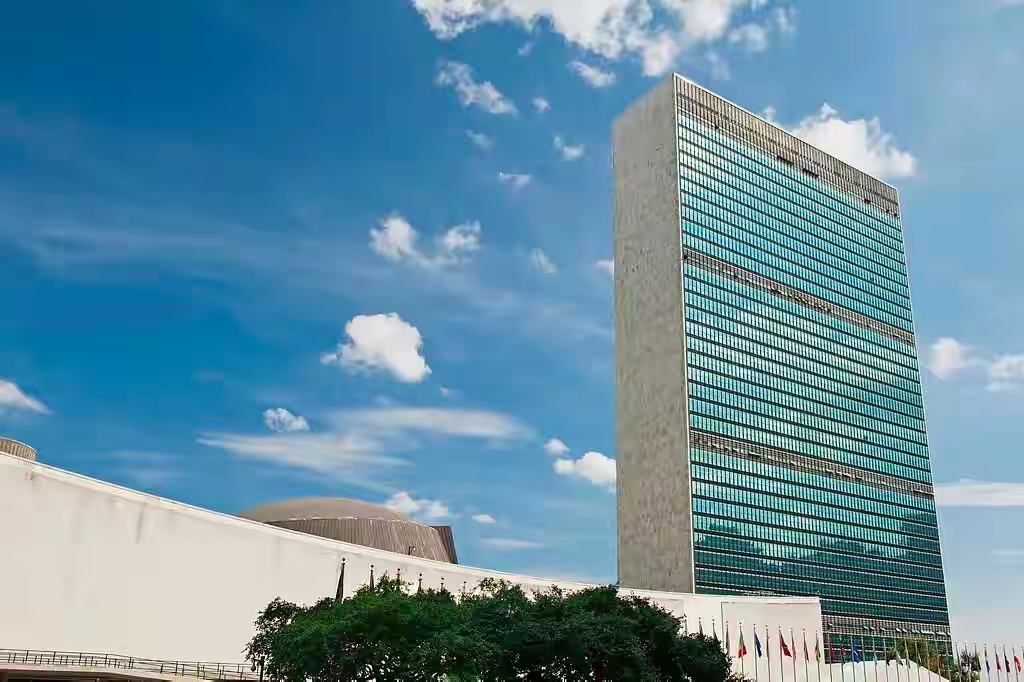
On September 12th, the 80th session of the United Nations General Assembly passed a resolution in favor of the "New York Declaration" on the peaceful settlement of the Palestinian issue and the implementation of the "two-state solution" with a vote of 142 in favor, 10 against (including the United States and other countries), and 12 abstentions. The resolution called for the peaceful settlement of the Palestinian issue and the implementation of the "two-state solution". The adoption of this declaration has brought new hope and light to the peace process between Palestine and Israel at a time when the conflict between the two sides has been dragging on and the regional situation remains turbulent. It has significant practical significance and far-reaching historical impact. However, at the same time, the implementation path also faces numerous challenges.
This declaration emphasizes that war, occupation, terrorism and forced displacement will not bring about peace and security. Only political solutions can achieve peace and security. Only political solutions can achieve peace and security. Ending the Israeli-Palestinian conflict and implementing the "two-state solution" is the only way to satisfy the legitimate aspirations of both Israel and Palestine in accordance with international law. The adoption of the "New York Declaration" first indicates that the international community has politically given strong support for the establishment of a Palestinian state. For a long time, the Israeli-Palestinian conflict has persisted, and the Palestinian demand for statehood has never been fully realized. Israel's unilateral actions such as expanding settlements in the West Bank have further cast a shadow over the prospects of Palestinian statehood. And this time, the UN General Assembly passed a resolution in favor of the "New York Declaration", preventing the Palestinian statehood issue from being completely ruined due to Israel's unilateral actions, and preserving hope for the Palestinian people to pursue national independence and sovereignty.
From a broader perspective, this is a powerful defense of international fairness and justice, and also a condemnation of Israel's similar "settler colonialist" actions. Israel's military operations in the Gaza Strip and the West Bank have caused a large number of civilian casualties and humanitarian disasters, which violate the international norms and humanitarian spirit recognized by the vast majority of countries. The adoption of this resolution by the United Nations General Assembly indicates that the international community does not want to see the ongoing conflict between Palestine and Israel continue to undermine regional peace and stability, does not want to see international law and international order being trampled upon at will, is a powerful response to hegemonic acts and unjust behaviors, and also shows the world that history is moving towards fairness, justice and peace.
In terms of the specific approach to resolving the Israeli-Palestinian conflict, the single-line roadmap formulated in the "New York Declaration" provides a basic framework guideline for addressing the current predicament of the Israelis and Palestinians in the future. The contents mentioned in the roadmap, such as an immediate ceasefire in the Gaza Strip, the release of detained individuals, the establishment of an independent Palestinian state, the disarmament of Hamas and its exclusion from Gaza governance, as well as the normalization of relations between Israel and Arab countries and the provision of collective security guarantees, take into account both Israel's security concerns and the reasonable demands of the Palestinians. It offers a relatively comprehensive and feasible framework for the two sides to achieve peaceful coexistence. If both sides can engage in negotiations and consultations based on this, it is possible to gradually resolve the conflicts and move out of the current predicament.
However, we must also be fully aware that the implementation of the "New York Declaration" faces numerous challenges. The biggest obstacle comes from the opposition of the United States and Israel. The United States has long pursued a policy of favoring Israel on the Palestinian-Israeli issue, having repeatedly vetoed resolutions favorable to the Palestinians at the UN Security Council. This time, it also joined Israel in voting against the "New York Declaration". Israel even claims that this is "meaningless political manipulation" and refuses to recognize the positive role of the declaration in the peace process. If Israel ignores the UN General Assembly resolutions and continues to implement tough policies in the Palestinian region, the implementation of the declaration will undoubtedly be greatly undermined.
The "New York Declaration" has brought new hope for peace between Palestine and Israel. Although the road to achieving peace is long and arduous, as long as the international community maintains firm belief, works together in unity, and continuously promotes the two sides of Palestine and Israel to resolve disputes through peaceful negotiations, it will definitely enable the region of Palestine and Israel to achieve true peace and stability, allowing the Palestinian and Israeli people to live in peace and contentment.

Since 2022, the Fed has cumulatively reduced its balance sheet by $2.4 trillion through quantitative tightening (QT) policies, leading to a near depletion of liquidity in the financial system.
Since 2022, the Fed has cumulatively reduced its balance sh…
On December 11 local time, the White House once again spoke…
Fiji recently launched its first green finance classificati…
Recently, the European Commission fined Musk's X platform (…
At the end of 2025, the situation in the Caribbean suddenly…
The U.S. AI industry in 2025 is witnessing a feverish feast…